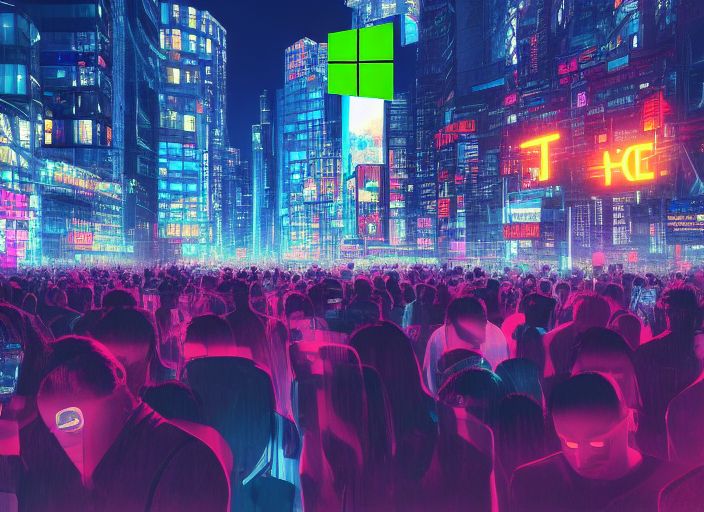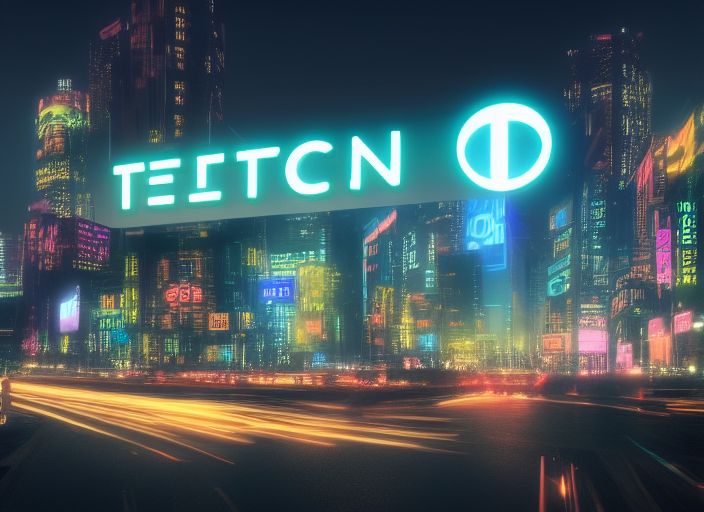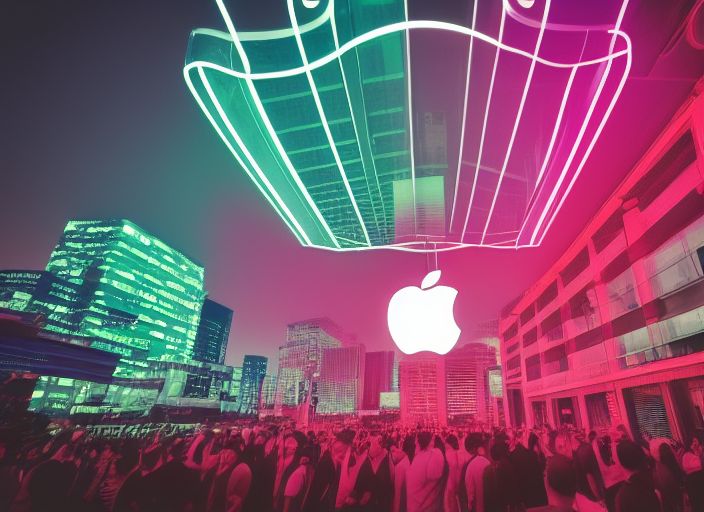Seven Major Firms Shaping the Metaverse Landscape
In Brief
Leading technology firms are crafting their unique strategies to leave a lasting impact on the future of the Metaverse.
As the metaverse evolves, there's an inflow of innovative content and platforms being created not only by small-scale crypto initiatives but also by industry giants like Google and Facebook. These tech leaders are beginning to tap into the vast potential the metaverse offers and are increasingly channeling funds into their developmental projects. For instance, Google is taking a more nuanced approach by emphasizing augmented reality, bridging the gap between the digital space and tangible experiences.

Meta, formerly recognized as Facebook, is on a new journey into the metaverse. This transformation is marked not just by a rebranding but also a strategic pivot for the organization. With its VR hardware in play and the Libra cryptocurrency project underway, Meta is clearly aligning itself with the future of virtual engagement. Additionally, Microsoft is concentrating its efforts on virtual workspaces within the metaverse. This innovative approach goes beyond traditional video conferencing by fostering permanent virtual environments where teams can collaborate.
Epic Games is approaching the metaverse from two unique angles. Initially, it aims to enhance user experiences and lay down a robust technological foundation to accommodate a growing player base. Moreover, the company seeks to empower content creators in developing top-notch 3D assets tailored for the metaverse.
Tencent, a major Chinese player in the gaming and messaging industries, has explicitly indicated that the metaverse represents a gateway into their technological advancements that are already in action.
Prominent Companies Expanding their Presence in the Metaverse

According to Google CEO Sundar Pichai, the metaverse embodies ‘an evolving computational landscape experienced through immersive augmented reality.’ Google possesses substantial knowledge in augmented reality, particularly through its Google Glass experience. In November 2021, Google restructured its VR and AR teams into a dedicated Google Labs division focused on holistic innovation. video conferencing tool Project Starline.
Currently, Google's focus seems centered on creating connections through augmented avatars that blend the digital and physical spaces. While a formal metaverse initiative from Google hasn't been unveiled yet, the foundation appears solid.

In May 2021, Facebook made a significant announcement about rebranding itself as Meta, a name that reflects its ambition to ‘empower people to cultivate communities and bring the globe closer together.’ The company's history with virtual reality dates back to the acquisition of Oculus in 2014, and they're now heavily invested in advancing their AR platform, Spark AR.
| Read more about Facebook |
|---|
| Meta is delving into the world of Ethereum and Polygon NFTs on Facebook |
Additionally, Facebook is developing a cryptocurrency named Libra, intended for purchasing virtual goods and services within the metaverse. Though Libra remains in the works, it’s evident that Facebook is strategically considering the role of digital currency in this emerging landscape.
Microsoft

Microsoft may not be carving out its own metaverse just yet, but it is taking steps to ensure its current offerings are compatible with metaverse concepts. For instance, their Office 365 suite incorporates a VR application called Immersive Reader, allowing users to interact with documents in a 3D format.
Moreover, Microsoft is actively exploring the utility of the metaverse for professional environments. Their Teams platform enables users to craft avatars for use during virtual meetings and events, while Microsoft's Azure cloud service is powering several ventures being created in the metaverse.
Tencent

Tencent stands as one of the largest global video game publishers, also owning the WeChat messaging service. The company has been diligently developing its own metaverse for a number of years and has made significant strides towards this goal.
Their creation, WeChat Open World, launched in 2019, allowing users to generate 3D avatars and navigate digital environments. Currently, WeChat Open World is confined to the Chinese market, although Tencent is eyeing expansion into other global territories.
| Read more about Tencent |
|---|
| Tencent is trialing NFTs as profile pictures, gearing up to introduce an NFT collection alongside virtual music environments. |
The company is headquartered in Hangzhou, Zhejiang province, and leads the gaming sector in terms of revenue and market positioning. Additionally, it owns popular Chinese messaging and social platforms, WeChat and Tencent QQ, which are pivotal to the metaverse's evolution. Tencent QQ, for instance, seamlessly integrates various functionalities such as gaming, e-commerce, films, and voice communication through its platform. With WeChat facilitating mobile payments integrated with social media, the barriers between physical and digital are becoming increasingly blurred.
It also offers a ‘mini-program’ functionality within its app, allowing third-party businesses to create accessible applications without requiring downloads. These two innovations showcase Tencent’s capability to facilitate fluid transitions between real and virtual realms.
Apple

Apple is among the select few tech giants secretly working on an innovative metaverse experience. The firm has filed several patents regarding both virtual and augmented reality, igniting speculation about an impending proprietary metaverse platform.
Furthermore, Apple has been actively recruiting specialists in the fields of virtual environments and avatars, indicating its serious intent to break into the metaverse sector.
Amazon

While Amazon hasn't articulated plans for a standalone metaverse, it's making significant strides to ensure its existing services are adapted for metaverse compatibility. For instance, its Office 365 suite now features an immersive reading application that permits users to engage with documents in a three-dimensional context.
Amazon, similar to other tech players, is investigating the potential of the metaverse for professional applications. The company's collaborative platforms empower users to establish avatars for virtual interactions in meetings and conferences, while Amazon's AWS cloud computing is proving essential for numerous metaverse creators.
IBM

IBM, a frontrunner in technological innovation, has been delving into virtual reality solutions over several decades. The prominent company is focusing on harnessing the metaverse for professional purposes.
IBM's Ava platform enables the creation of avatars for virtual gatherings and meetings, while the Watson AI service supports various developers working on metaverse projects.
FAQs
Understanding the essence of the metaverse can be captured through Google's interpretation. Envision the metaverse as a wholly digital environment coexisting with our physical world, where an architect's dedication can lead to the creation of unique physical spaces.
With the integration of Amazon's AR View platform, the company is already embedding metaverse concepts into its online shopping experience, utilizing computer-generated simulations since the advent of this technology. Shoppers can employ augmented reality to explore products in new interactive ways. design and decorate their homes with the AR View tool.
McDonald’s is among the numerous global brands betting on the metaverse as the future landscape for marketing and customer engagement.
In this advanced virtual and augmented reality domain known as the metaverse, users can engage, play, and conduct transactions. This environment presents brands with the opportunity to broaden their reach, establish a digital presence, and potentially boost revenues through metaverse marketing efforts.
It appears that Apple's metaverse will incorporate both augmented and virtual realities, as the company is simultaneously crafting hardware tailored for each aspect. Their inaugural product will be a mixed-reality headset, encapsulating a ‘best of both worlds’ strategy for the metaverse experience.
On Tuesday, Microsoft announced a collaboration with Kawasaki to harness the ‘industrial metaverse’ for the development of robots, enabling factory workers to superimpose digital graphics onto real-world scenarios using Microsoft's HoloLens.
Conclusion
The race to shape the metaverse is rapidly gaining momentum. Many of the world's leading corporations are pouring billions into crafting virtual realms destined to converge into a singular, global metaverse.
Although still in its infancy, the metaverse is poised to revolutionize our lifestyle, work, and recreation. So far, the primary focus has been on crafting immersive 3D environments for gaming and entertainment. However, looking ahead, the metaverse promises to evolve into a versatile space for work, shopping, socializing, and even residential living.
Related articles:
Disclaimer
In line with the Trust Project guidelines Please be mindful that the information presented here is not designed to be and should not be construed as legal, tax, investment, financial, or any other form of guidance. It's crucial to only invest what you can afford to lose and to seek independent financial advice if uncertainty arises. For additional insights, we recommend reviewing the terms and conditions along with the support resources provided by advertisers or issuers. MetaversePost is dedicated to delivering precise and impartial reporting, although market dynamics do fluctuate without notice.




